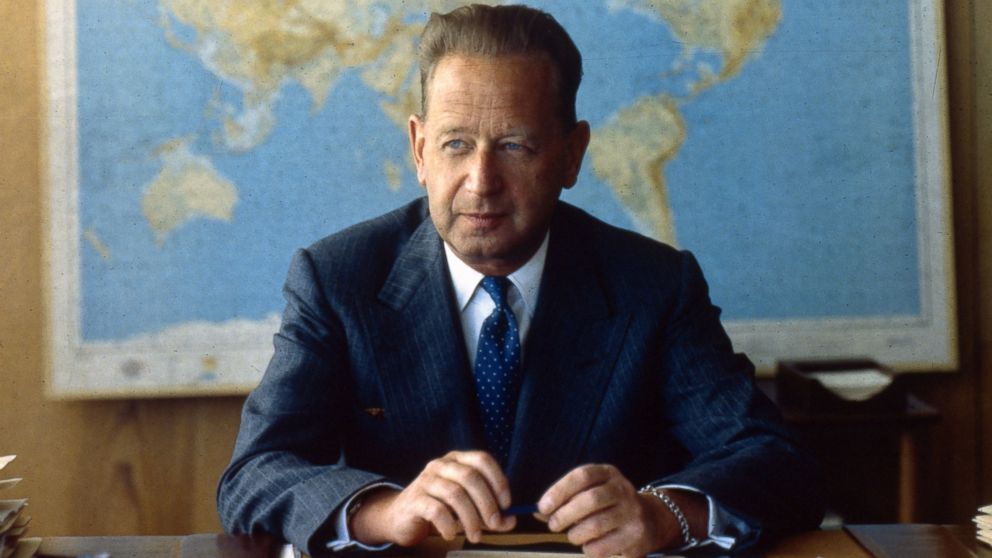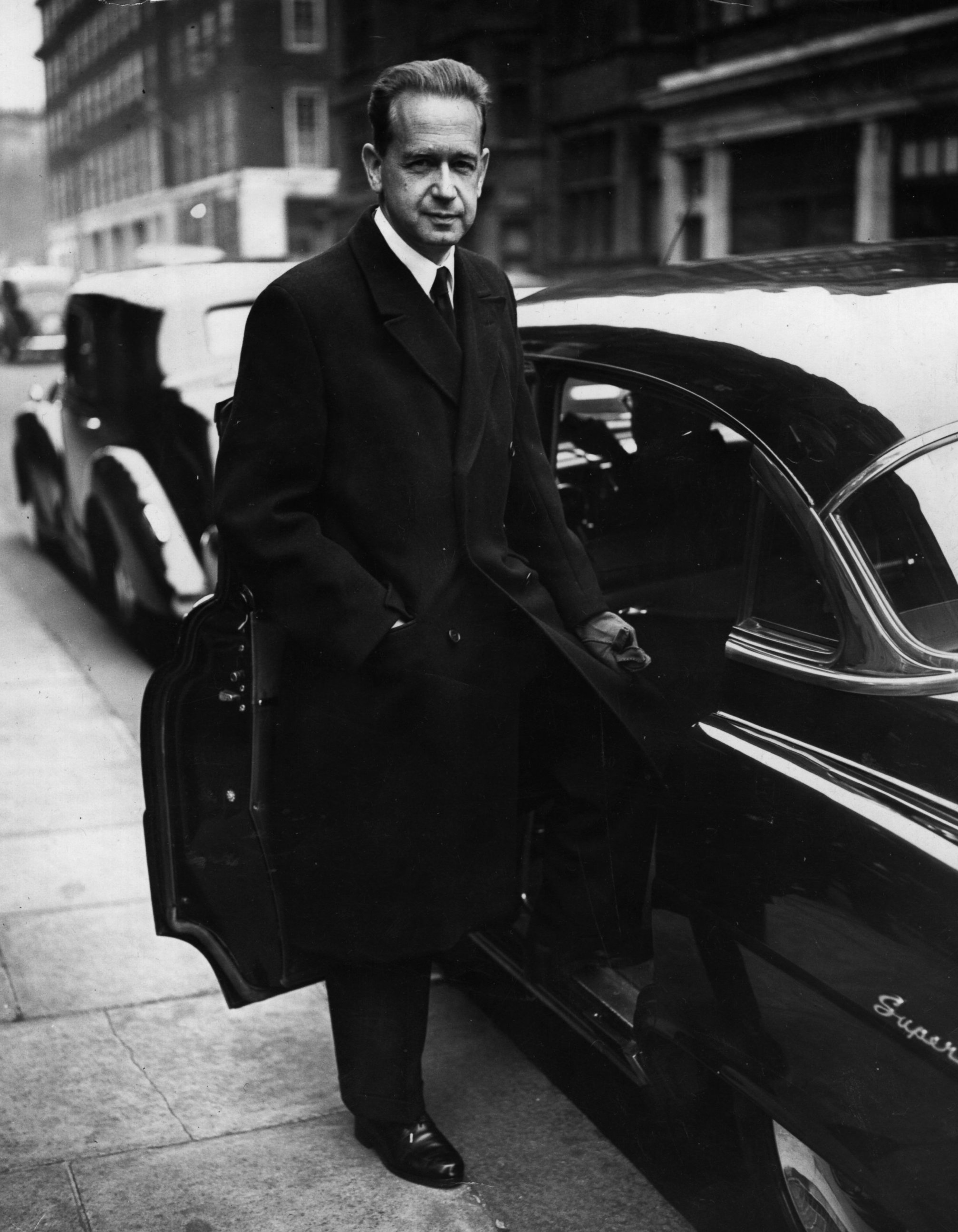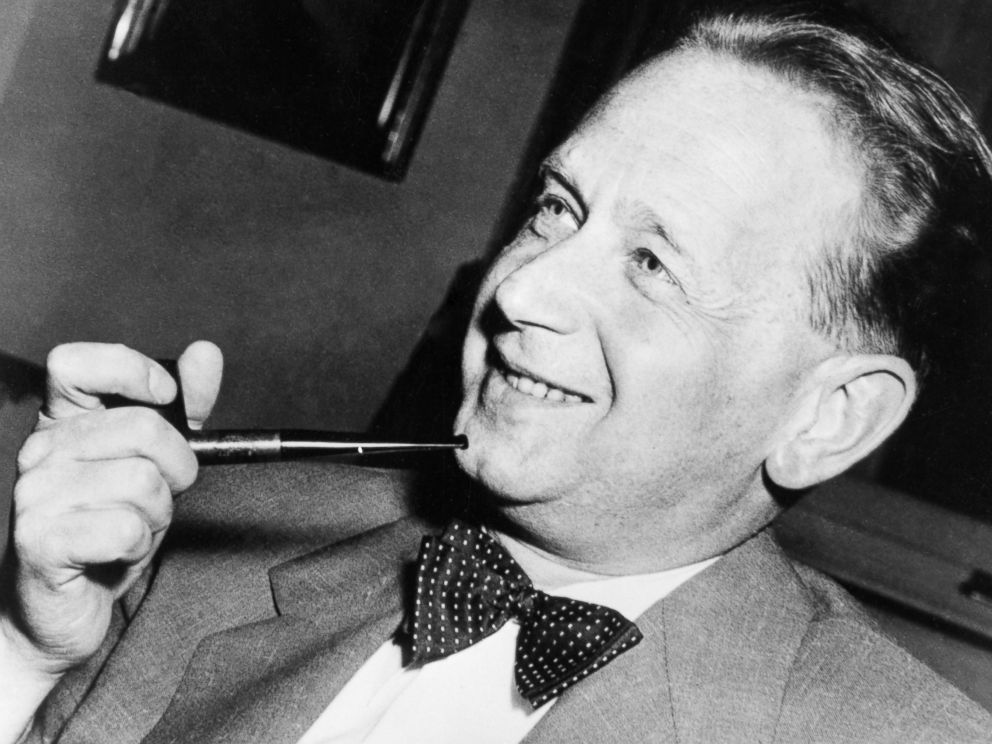UN Chief Calls for Inquiry Into Mysterious Dag Hammarskjold Plane Crash
The late secretary-general and 15 others died in a mysterious accident.

— -- United Nations Secretary-General Ban Ki-moon believes further investigation is necessary to uncover the truth behind a 1961 plane crash in which Secretary-General Dag Hammarskjold and 15 others died.
Questions remain about a possible aerial attack or other interference, Ban said.
But Ban said in a letter to the U.N. General Assembly circulated Monday that an independent review of new information about the mysterious crash put to rest claims that Hammarskjold was assassinated after surviving the crash.
Ban called for countries to disclose relevant records related to the crash.
Hammarskjold's plane, a DC-6 known as the Albertina, crashed Sept. 18, 1961, in the African bush in Northern Rhodesia, today's Zambia, during a peace mission to newly independent Congo.

The crash has long been shrouded in mystery. The lone survivor reported that there were explosions aboard the plane before it hit the ground, and speculation has raged that the plane was shot down, or that Hammarskjold was the subject of an assassination plot.
Pilot error has also been thought to have ontributed to the accident.
Hammarskjold devoted his life to diplomacy and public service. He was born in 1905, the son of Swedish prime minister Hjalmar Hammarskjold, who pushed for neutrality during World War I.
After attending college and receiving a doctorate from Stockholm University, Hammarskjold served as a professor and held various government roles. He joined the United Nations in 1949, and was approved as secretary-general in 1953.

His tenure was marked by his diplomatic entreaties: face-to-face communication between various heads of state, pursuing peace, seeking accord.
“He probably knows more state secrets than any man alive,” Parade wrote of Hammarskjold in a 1960 profile. “He hides what he knows behind a cloud of diplomatic double-talk. Like a baseball umpire, he is aloof, almost icy, and does not fraternize with the players. Also, he is criticized by both sides, and respected for his integrity.”
After his death, Hammarskjold was awarded a posthumous Nobel Prize, one of three people to earn the distinction. A foundation was also established in his name, and his journal was published as “Markings,” a collection of insights and spiritual reflections.
The Associated Press contributed to this report.




